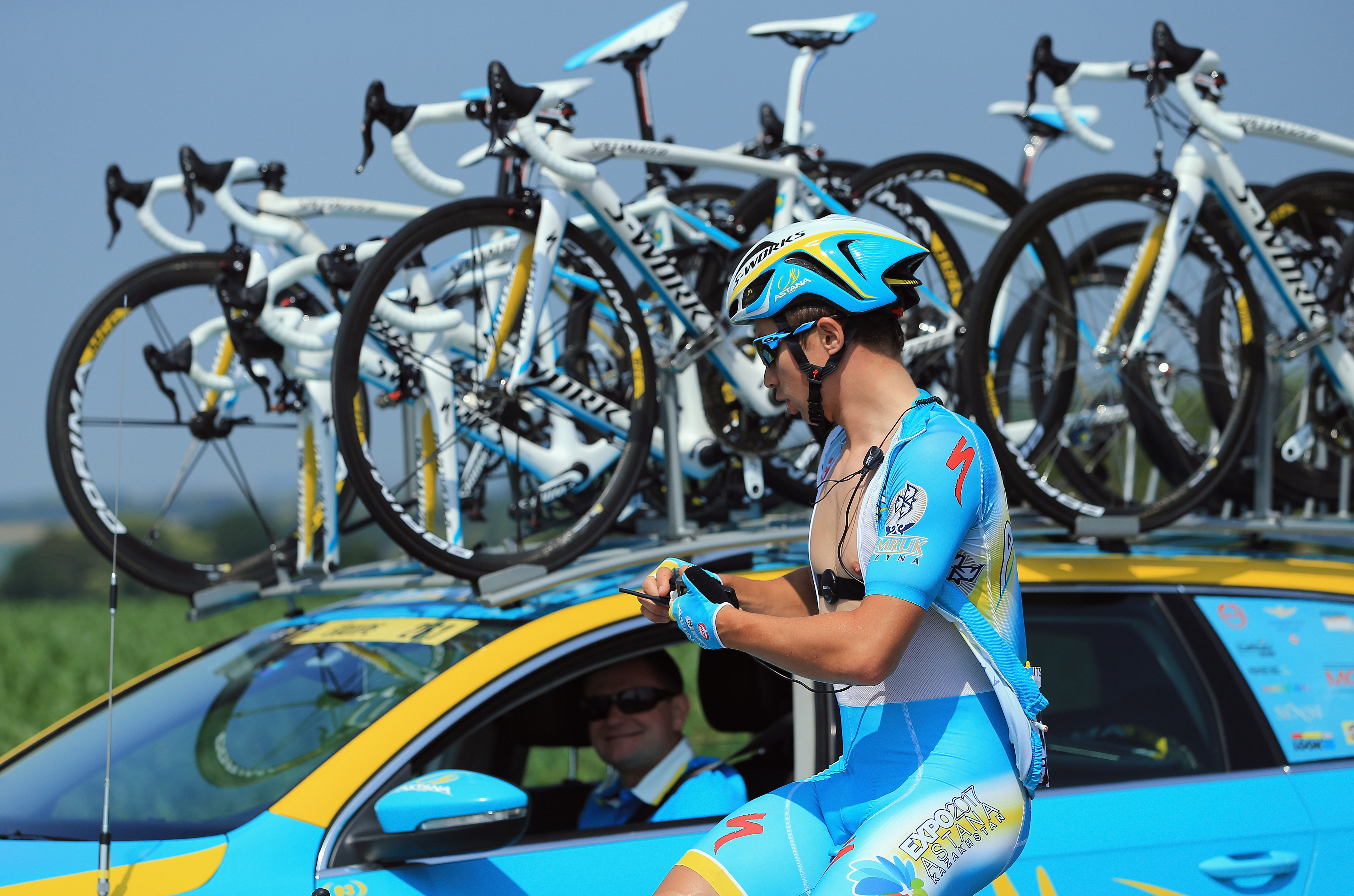‘We have to slow down the evolution of cycling’ - Is it time to ban radios in road races for good?
Marc Madiot renews calls for the restriction of radios, power meters and GPS during road races


Cycling is - once again - talking about race radios. Speaking in a L’Equipe documentary, ‘Crash, peloton sous tension’, last week, Groupama-FDJ boss Marc Madiot called for the restriction of radios, power meters and GPS during professional road races.
The debate around the use of radios has long raged on. Since their introduction in the 1990s, they have appeared in and out of the peloton. They were banned in 2011 by the then-president of the UCI, Pat McQuaid, only to reappear a few years later. In 2017, David Lappartient warned that gamblers could hack the radio lines, and campaigned for their ban once more. Only last year, the UCI trialled a restricted use of radios, and they are still not in use in World Championship and Olympic races, but are in professional ones.
They are a contentious piece of kit in part due to what Madiot terms their potential to “remote control” riders. The team cars follow at the back of the peloton, watching the race and advising riders on tactical moves, or responding to mechanical or medical emergencies.
“We tell them: ‘watch out, danger, we’re going through a village, there are speed bumps and roundabouts. You have to be in front,’” Madiot explained.
“But there isn’t room for everyone in front! We’re going in the direction of going faster to be in front of the others.”
With increased speed comes the risk of crashes and subsequent injuries. For Madiot, the use of technologies like power meters, and the distraction of the radio, increase the risk-factor of racing. However, those in favour of keeping radio support argue that constant contact with teams is ultimately safer for riders who might find themselves in trouble.
The banning of race radios “would be fun and games until you lose a Grand Tour because you can’t communicate to your team car that you’ve had a crash or a puncture,” said Attila Valter, of Visma-Lease a Bike.
The latest race content, interviews, features, reviews and expert buying guides, direct to your inbox!
But do the use of radios make races boring? According to Romain Bardet, they do.
“We should turn them off,” the retired Picnic PostNL rider told Cycling Weekly in 2024.
“For me, it’d really help to increase the reliability and interest around bike racing, because the human being would have to show up.”
This is what Madiot believes would stall the “evolution” of road racing. With less dependence on advised tactical manoeuvres that could push riders faster, the riders may race more creatively as they respond to the course in real-time, making for potentially more interesting racing.
But human beings bring human error, and what both sides of the argument seem to share is a genuine concern for rider safety. In an effort to slow the maximum speeds that can be achieved by racers, the UCI have confirmed a gear restriction test event later in the season, which will also require a new - and controversial - 400mm handlebar width. In the same documentary in which Madiot called for a ban on radios, Guillaume Martin-Guyonnet suggested that slower tyres should be introduced into road racing.
So, to radio, or not to radio - the debate rages on for another year.

Meg is a news writer for Cycling Weekly. In her time around cycling, Meg is a podcast producer and lover of anything that gets her outside, and moving.
From the Welsh-English borderlands, Meg's first taste of cycling was downhill - she's now learning to love the up, and swapping her full-sus for gravel (for the most part!).
You must confirm your public display name before commenting
Please logout and then login again, you will then be prompted to enter your display name.